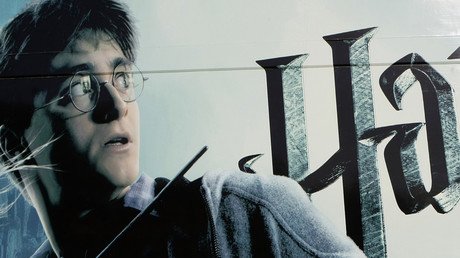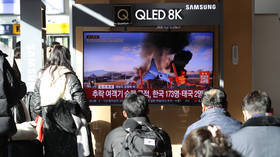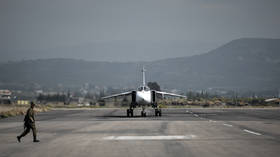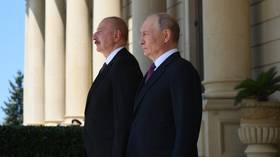‘Ban, ban, ban!’: Paralympians fall victim to US anti-Russian propaganda
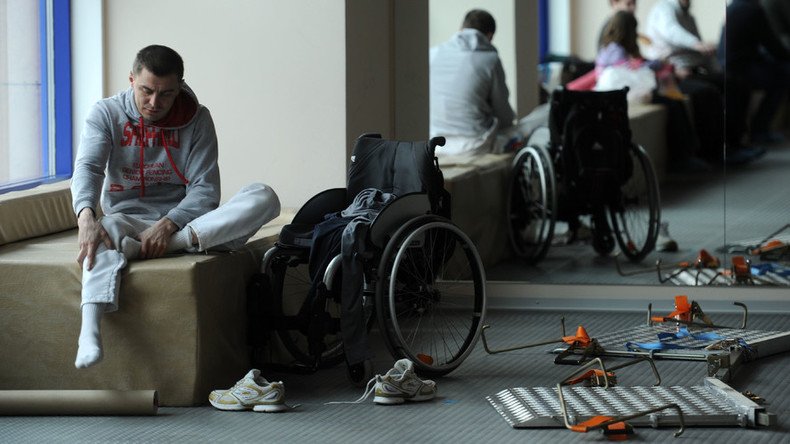
The banning of the entire Russian team at the Paralympics in Rio is the latest example of how sport has become a front in the US-led propaganda war against Russia.
Russian Paralympians who have never done anything wrong have been deprived of the chance to compete in an event they’ve spent the last four years preparing for. And all because they happen to have a passport marked Russian Federation.
The racism is blatant and there for all to see. Other countries have drug cheats, but they avoid blanket bans. Only in the case of Russia are the majority expected to suffer for the sins of the few. But because Russians are the victims, and Russia is the ‘Official Enemy’ of the US superpower, there is no condemnation from self-styled western ‘liberals’ who are normally so quick to accuse critics of US foreign policy of being ‘racist’. Far from it, western ‘liberals’- along with their neocon allies - have been in the forefront of the campaign to put Russia in the international ’sin bin’.
Banning every Russian #Paralympics athlete ‘most vulgar form of justice imaginable’ https://t.co/4W7rPGAFQ6
— RT (@RT_com) 23 августа 2016 г.
If we look closely at the doping allegations against Russia and who is making them, we find- surprise, surprise, that all roads lead back to the US and its closest NATO allies.
The International Paralympics Committee (IPC), whose chairman. Sir Philip Craven, is British, and which has nine representatives from NATO countries on its 15-member governing board,based its decision to ban all Russian athletes on the McLaren report.
This report, put together by a Canadian lawyer, is cited by supporters of a Russian ban as if it’s a work of unquestionable authority. In fact it’s a deeply flawed document, which makes plenty of charges, but which fails to back them up with the evidence. It’s not so much a report, as an indictment.
For its most damaging claim, that Russia operated a state sponsored system of doping, McLaren relies - as did 60 Minutes and the New York Times before him, on the testimony of just one man - the former Director of the Moscow and Sochi doping control laboratories Grigory Rodchenkov, who defected to the US.
But no hard evidence has yet been produced to back up this claim: all the report tells us is how a state sponsored doping scheme COULD have operated. McLaren assures us he has the evidence, but can’t release it through fears for the safety of family members of those concerned.
CAS decision to ban Russian Paralympic athletes from Rio political, not legal – sports minister https://t.co/DFkR5Mvtfg
— RT Sport (@rtsportnews) 23 августа 2016 г.
How very convenient for those NATO countries who are using his report to exclude Russia from international sporting events. Convenient too for the NATO countries, that McLaren said that he “did not seek to interview persons living within the Russian Federation” to get the Russian side of the story.
Let’s just imagine, for a moment if a lawyer from a country closely allied to Russia, produced a report claiming that US operated a state sponsored doping program - based on the testimony of a top American official who had defected to Russia. And that the lawyer said although he had evidence to back up the claims, he couldn’t release it for safety fears. And that he didn’t think it ‘practical’ to interview officials in the US to hear their testimony.
Would such a report be regarded as a holy text as McLaren’s is?
Of course not. You can be 100 percent certain it would not lead to blanket bans of American athletes from the Paralympics. In fact even if evidence were produced of a scheme, it‘s unthinkable the US would be subject to a blanket ban. The IPC just wouldn’t dare.
In case you think this is all hypothetical, think about what happened - or rather didn’t happen - in 2003 when allegations were made by a top American official about widespread US doping.
Wade Exum, the US Olympic Committee’s former Director of Drug Control, handed over more than 30,000 pages of documents to Sports Illustrated magazine and the Orange County Register, which he said showed that over 100 American athletes had failed drug tests between 1988-2000, but had still been allowed to compete.
Carl Lewis, the US Olympian later admitted he had tested positive for banned substances before the 1988 Games in Seoul where he won Gold, but claimed that ‘hundreds’ of fellow Americans had also escaped bans.
“There were hundreds of people getting off,” Lewis said. “Everyone was treated the same.”
But Exum’s claims - unlike those of Rodchenkov, didn’t have legs - despite the corroboration from Carl Lewis. The US Olympic Committee (USOC) rubbished the claims as “baseless”. There was no McLaren style report and, of course, no blanket bans of US athletes. “For much of the 80s and 90s, the US had a pervasive doping problem in Olympic sports that was enabled by the USOC. Our Olympic leaders and corporate sponsors and many of us in the news media placed hands over our eyes and blocked ears at talk of American doping,” admits Michael Powell in the New York Times.
Again, the double standards where Russia is concerned are off the scale. We know from Reuters that, before the McLaren report was published, the US and Canadian anti-doping agencies prepared a draft letter to the International Olympic Committee, urging the IOC to impose a blanket ban on ALL Russian athletes at the Rio Games - and not just those who had failed drug tests. The letter was circulated to the World Anti-Doping Agency Athletics committee members by the Canadian Becky Scott, who chairs said committee.
The IOC, to its credit, did resist pressure coming from NATO countries to impose a blanket ban on Russian athletes at Rio, but it seems the IPC has decided to go down the road of least resistance.
And in doing so, they have destroyed the 2016 Paralympics. An Olympics, or Paralympics without Russia, one of the world’s greatest sporting countries, are like a football World Cup without Brazil or Germany.
For some though, the Russian ban is very good news.
The absence of one of their major rivals from the games means more medals for the US, whose politicians will then be able to boast about how well they’ve done. Big US multinationals are utterly ruthless in their attempts to increase their market share and destroy their competitors: what we are seeing is this aggressive policy toward business rivals now being carried out in the sporting arena - with concerns over doping as the pretext.
The decision of the Court of Arbitration for Sport to uphold the IPC’s ban will only embolden the US and its closest allies to step up their campaigns to get Russians banned from further international sporting events. After the Paralympics is over, we can confidently expect renewed efforts to strip Russia of the 2018 World Cup; the warmongering US neocon Senator John McCain has already written to FIFA urging them to move the World Cup somewhere else.
To have Russia host the World Cup would be a disaster for western neocons as the month-long event would showcase the nation they despise more than any other, to the entire world.
The football fans, visitors and sports journalists who would descend on Russia from all over the world, would see what a nice country it is. That would never do for those who want to keep Russia permanently in the sin bin.
Be prepared: Everything possible will be used in the campaign to take the next World Cup away from Russia. Russian football hooliganism, Russia‘s non-existent ‘invasion‘ of Ukraine, gay rights - you name it, all these arguments will be deployed by propagandists for US global hegemony.
Let’s leave the last word to Joe Biden, the Vice President of the world‘s ‘Exceptional Nation’- and one which doesn’t have to worry too much about doping bans.
“We are America, second to none, and we own the finish line," he said. "Don't forget it."
Just imagine the outcry if a top Russian politician had said that about their country.
Follow Neil Clark @NeilClark66
The statements, views and opinions expressed in this column are solely those of the author and do not necessarily represent those of RT.

